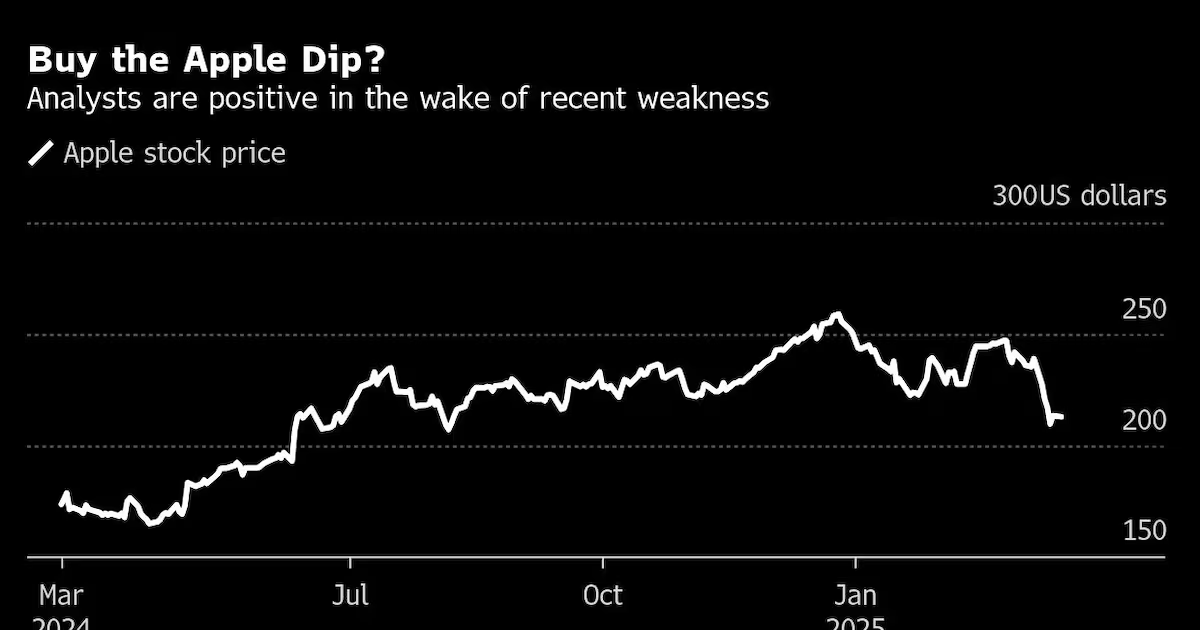
Apple’s worst week since 2022 spurs Wall Street to defend stock
- 17.03.2025 17:25
- bnnbloomberg.ca
- Keywords: Apple, Wall Street
Apple’s stock dropped nearly 11% last week, its biggest weekly fall since November 2022, amid concerns over tariffs, economic uncertainty, and tepid growth prospects. Despite challenges, analysts highlight the company’s strong brand, balance sheet, and long-term potential through new products like foldable phones, expecting iPhone revenue to grow by nearly 10% in future years.